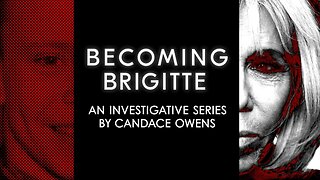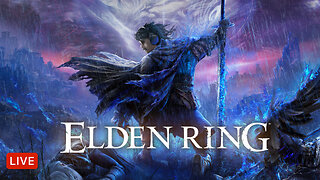Premium Only Content

Life on the Edge: Ukrainians' Uncertain Existence in Russia's Far East
A year ago, Natalia's life was turned upside down by war. With her family, she fled the fighting in Ukraine's southeastern city of Mariupol and crossed into Russia. From there, she and many other Ukrainians were encouraged by Russian authorities to take a 4,000-mile train journey east to the very edge of Siberia, to a coastal town called Nakhodka on the Sea of Japan, a stone's throw from North Korea. It's closer to Alaska than to the front lines.
For many people in Mariupol at that time, going to Russia was the only option since there was no reliable evacuation corridor to Ukrainian-held territory. However, Ukraine describes these refugees as forcibly deported, although Natalia says that no one forced her to leave. "It was our decision," she told by phone from Russia's far east, where she has resettled since arriving last spring.
Now, as Russia's war in Ukraine grinds into a second year, she and others lead an uncertain existence, unsure if, or when, they will ever be able to return home or be welcome when they get there.
The United Nations estimates that more than 2.8 million Ukrainians have taken refuge in Russia over the past year. Some - largely those who could afford it - have transited through Russia to other countries in Europe, and many have even made it back to Ukraine. International law prohibits forcible transfers of people and stipulates that evacuees should be moved home as soon as hostilities have ceased.
Their mere presence in Russia is ultimately a win for the Kremlin, according to Nathaniel Raymond, executive director of Yale University's Humanitarian Research Lab. Russia, he says, needs more people. "In many parts of the country, they don't have enough citizens to make those municipalities function," he said. There is also "a propaganda benefit, positioning these people as somehow willingly seeking citizenship in Russia, which fits this broader narrative that Putin and the Kremlin [are pushing]... trying to rebrand the war as saving Ukrainians from purported Nazis."
Russia has tried several experiments to attract people to its resource-rich far east, including from ex-Soviet states. Now, state programs are being repurposed to accommodate fleeing Ukrainians. Those who agree to go to Russia's far east are promised a cash payment, housing assistance, Russian citizenship, and potentially even free land.
Many of the new arrivals in Nakhodka, in Russia's Primorskiy Krai region, were reluctant to say much about their circumstances or share their opinions, but others shared enough to get a clearer snapshot of life in Russia's far east and how Ukrainians there are adjusting.
Some offered mildly pro-Russian views, others declined to answer questions about the war, while some even gave scathing criticism of Ukraine. No one directly criticized Moscow, but it is not clear how freely people felt they could speak.
The cost of living in Primorskiy Krai, whose main city is Vladivostok, is the 11th highest in Russia, more expensive even than Moscow and St. Petersburg regions, according to official figures. This is due in part to the rate of new home-building lagging behind the national average.
Life on the edge for Natalia and other Ukrainians in Russia's far east remains uncertain. While they have been promised assistance, their future is in the hands of a government that is using them for its own purposes. The conflict between Ukraine and Russia has not yet come to a close, leaving these refugees in a state of limbo, hoping to return home one day but unsure if it will ever be possible. Subscribe for more content like this.
Natalia used to have a job she loved and a home she loved in Mariupol, Ukraine. But now, she finds herself struggling to make ends meet in a local food-processing plant in Russia, where she and her family were resettled after fleeing the war-torn eastern region of Ukraine. “Nothing’s changed (in the past year) except the place,” she said. “But I no longer have a job that I love and a home I love.” The worst part? Russian authorities took her Ukrainian passport and swapped it with a Russian one, leaving her stateless.
Under the terms of her resettlement, Natalia must live in Russia for at least three years, or be forced to repay any state benefits her family has received. She is not alone. Many Ukrainian people who have signed on for the years-long program are in “basically a degree of indentured servitude,” says Joshua Raymond, a human rights lawyer at the University of Oxford. “Being in a contract, so to speak, for three years puts them in a very vulnerable position.”
What is happening to Ukrainians like Natalia is a story of forced relocation, indentured servitude, and uncertainty. The UN Universal Declaration of Human Rights says that “no one shall be arbitrarily deprived of his nationality” and that everyone has a right to leave any country, even their own. But Russian authorities have taken away their Ukrainian passports, leaving them stateless and at the mercy of their new country.
Natalia is allowed to travel freely but says she won’t go back to Ukraine. “Those who left for Russia are immediately considered criminals by the Ukrainian authorities, so I am forbidden to go there." And while the resettlement program was intended to be a temporary measure, many Ukrainians find themselves stuck in Russia long term, unsure whether they will ever be able to return home.
The lack of clarity on the issue is the biggest problem. “At this point, the absence of clarity is the biggest problem” when it comes to Ukrainians in Russia, and whether they are free to return home, says Raymond. “There is, understandably, within Ukraine an absolute outrage against those who are perceived as collaborators. But the fact of the matter is that we are dealing here with a civilian population … that was seeking refuge in a time of war.” Raymond says Kyiv must make it crystal clear that Ukrainians citizens who ended up in Russia can come home, otherwise, many likely won’t. And that only serves Russia’s interests.
It’s not just the lack of clarity that’s troubling. By law, Ukraine considers those who publicly deny occupation, assist the Russian military in Ukraine, or even call for support of Russian actions, to be collaborators and liable for criminal penalties. This puts Ukrainians like Oksana, who has both Ukrainian and Russian passports, in a difficult position. She says she would like to return to Mariupol to visit, but only if it’s part of Russia. “Somehow things are better in Russia – quieter, whereas it is a total mess in Ukraine. It is just unclear what it is that our government is doing,” she said. “I am for peace all over the world.”
But the reality is that Ukrainians who remain in Russia long term may not be welcomed back without issue. The Ukrainian Prosecutor General’s office recognizes that for many people “the only safe passage was through Russia. Of course, they are not considered collaborators […] They need to get to any third country and address a local Ukrainian consulate. It will issue them Ukrainian documents to return to Ukraine.” Thanks for watching, subscribe our channel for authenticity.
-
 2:21:20
2:21:20
Robert Gouveia
8 hours agoTrump Goes to SCOTUS! Judge CAVES on DOGE? Fani Willis Not Happy!
96.3K29 -
 20:41
20:41
Stephen Gardner
8 hours ago🔥You Won't BELIEVE What JUST Happened To Don Trump Jr.!!
98.4K134 -
 58:00
58:00
The StoneZONE with Roger Stone
6 hours agoEuropean Leaders Resist Trump Peace Overtures To Their Own Demise | The StoneZONE w/ Roger Stone
68.8K11 -
 9:29
9:29
AlaskanBallistics
8 hours ago $5.74 earnedWyoming Suppressors and Rifles at Shot Show 2025
73.9K3 -
 1:06:40
1:06:40
Donald Trump Jr.
12 hours agoThe Left is Taking one L After Another, Live with Michael Knowles | Triggered Ep. 217
167K110 -
 47:17
47:17
Kimberly Guilfoyle
12 hours agoWoke Gets DOGE’d, Live with AJ Rice & Jarrett Stepman | Ep. 197
124K42 -
 20:11
20:11
Candace Show Podcast
10 hours agoBecoming Brigitte: Candace Owens x Xavier Poussard | Ep 6
186K318 -
 8:25:38
8:25:38
Dr Disrespect
15 hours ago🔴LIVE - DR DISRESPECT - ELDEN RING DLC - REVENGE
190K22 -
 54:22
54:22
LFA TV
1 day agoThe End of the Trans-Atlantic Alliance | TRUMPET DAILY 2.17.25 7PM
47.7K6 -
 55:56
55:56
BIG NEM
13 hours agoUGLY COCO: The Rapper Who’s Tried EVERY PSYCHEDELIC 🌌
20.6K1